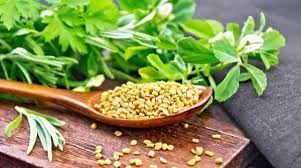Categories
Most Popular
Dahi Baray Recipe
Search This Blog
- January 20261
- December 20254
- November 20254
- October 20257
- September 20256
- August 20257
- July 20257
- June 20252
- May 20258
- April 20255
- March 20252
- February 20256
- January 20256
- December 20245
- November 20245
- October 20248
- September 20245
- August 20247
- July 20245
- June 20243
- May 20249
- April 20244
- March 20248
- February 20246
- January 202412
- December 20238
- November 20239
- October 202312
- September 202310
- August 202310
- July 20236
- June 20237
- May 202310
- April 20239
- March 20235
- February 20233
- January 20238
- December 20225
- November 20229
- October 202212
- September 20227
- August 202211
- July 20224
- June 202210
- May 20228
- April 20221
- March 202224
- February 202214
- January 202216
- December 202112
- November 202116
- October 202117
- September 20219
- August 202122
- July 202117
- June 202128
- May 20211
- April 20213
13 Remedies to treat diabetes at home
Certain meals might have a detrimental effect on your diabetes. Therefore, the first thing you should do is stop eating these things.
1. Refined sugar :
Everyone is aware that sugar, unless it is consumed in its natural state, is dangerous for diabetics. When ingested, refined sugar causes a sharp rise in blood sugar. Even natural sugars, such as honey, may cause a sharp rise in blood sugar levels. So, if you have diabetes, it is best to avoid refined sugar at all costs.
2. Whole grains :
It is best to avoid grains that contain gluten. Gluten consumption has been linked to diabetes because it can result in leaky gut, which can induce inflammation and, eventually, autoimmune diseases.
4. Cow's milk :
Similar to whole grains, cow's milk can cause the immune system to overreact, which can result in inflammation. Sheep and goat milk is not toxic; in fact, it aids in blood sugar regulation. But if you have diabetes, drinking regular cow milk might be harmful to you.
5. Cinnamon:
A bioactive component found in cinnamon has the potential to combat and prevent diabetes. It is well known that cinnamon increases insulin action, which lowers blood sugar levels. Like too much of anything is harmful, too much cinnamon can raise the risk of liver damage since it contains a substance called coumarin. The real cinnamon, not the kind you get in stores.
How to take cinnamon: Take one teaspoon or half a teaspoon of ground cinnamon in warm water once a day.
Water and raw cinnamon are brought to a boil. Have it every day after letting it cool for 30 minutes and have it daily.
6. Fenugreek seed:
There is some indication that fenugreek may aid in blood sugar regulation, while further high-quality trials in people are required.
7. Aloe vera:
It is widely available in Indian homes. Even though it has a bitter flavor, mixing it with buttermilk improves the flavor. Aloe vera is typically used in cosmetic products, but because it has anti-inflammatory characteristics, it may also treat wounds. It has anti-inflammatory qualities and is thought to regulate blood sugar levels.
8. Jamun:
It has been demonstrated that jamun and its leaves are effective in decreasing blood sugar levels. It is stated that consuming 100 grams of jamun per day would significantly enhance your blood sugar levels.
9.Vitamin C:
Vitamin C benefits diabetes as well as the skin. According to recent research, taking 600 mg of vitamin C daily can considerably lower blood sugar levels. People with long-term diabetes should regularly eat foods high in vitamin C. Oranges, tomatoes, amla, and blueberries are a few examples of foods high in vitamin C.
10. Exercise:
Being overweight is one of the primary causes of type 2 diabetes. Yoga, Zumba, aerobics, working out at the gym, or participating in sports can all considerably lower blood sugar levels while helping you maintain your weight. Additionally, daily walking can significantly lower blood sugar levels.
Three strategies to lower your risk of diabetes
11. Make water your main beverage of choice:
By choosing water as your primary beverage, you may stay away from other drinks that are full of sugar and preservatives.
Adults with type 2 diabetes and latent autoimmune diabetes are more likely to consume sugary drinks.
12. If you are overweight, lose weight:
Although type 2 diabetes does not always occur in overweight or obese adults, it does in the majority of cases. The risk of developing diabetes is markedly increased by excess visceral fat, which encourages inflammation and insulin resistance.
Your chance of developing type 2 diabetes is reduced by even 10% weight loss. The general guideline is that you will gain more advantages as you lose more.
13. Stop smoking:
Numerous major medical issues have been associated with smoking. Additionally, studies have indicated that smoking and passive smoking increase the risk of type 2 diabetes.
Smoking raises diabetes risk by 44%, and the risk rises to 61% for those who smoke more than 20 cigarettes each day.






0 Comments